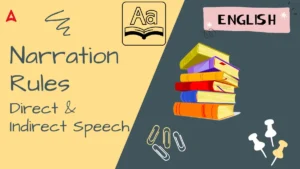Directions (1-5): Rearrange the following five sentences
(A), (B), (C), (D) and (E) in the proper sequence to form a meaningful paragraph
and then answer the questions given below.
(A), (B), (C), (D) and (E) in the proper sequence to form a meaningful paragraph
and then answer the questions given below.
(A) Beggar-my-neighbor, in economics, is a
trade policy of competitive devaluation, where countries devalue their exchange
rates in rapid succession in order to make export prices more competitive.
(B) This was
prevalent in the 1930s. It is harder to achieve under floating rates, though
the Japanese are often accused of trying to keep the yen artificially low to
encourage their exports.
prevalent in the 1930s. It is harder to achieve under floating rates, though
the Japanese are often accused of trying to keep the yen artificially low to
encourage their exports.
(C) Although
beggar-my-neighbor policies work for a short time, to boost the domestic
economy, there are several detrimental results –(1) the protected industry is
inefficient, so consumers have to pay higher prices; (2) trading partners are
forced to retaliate with their own protectionist policies; and (3) they earn
less foreign exchange, so buy less of the first country’s exports.
beggar-my-neighbor policies work for a short time, to boost the domestic
economy, there are several detrimental results –(1) the protected industry is
inefficient, so consumers have to pay higher prices; (2) trading partners are
forced to retaliate with their own protectionist policies; and (3) they earn
less foreign exchange, so buy less of the first country’s exports.
(D) In
effect, everyone is beggared.
effect, everyone is beggared.
(E) This
happened in the 1920s and 1930s but was partly outlawed by GATT (the General
Agreement on Tariffs and Trade) after 1947. The slow-growing 1970s and 1980s
and early 1990s have rekindled beggar-my-neighbor instincts.
happened in the 1920s and 1930s but was partly outlawed by GATT (the General
Agreement on Tariffs and Trade) after 1947. The slow-growing 1970s and 1980s
and early 1990s have rekindled beggar-my-neighbor instincts.
Q1. Which of the following should be the First sentence of
the given paragraph?
the given paragraph?
(a)E
(b)D
(c)C
(d)B
(e)A
Q2. Which of the following should be the Third sentence of the given paragraph?
(a)A
(b)B
(c)C
(d)D
(e)E
Q3. Which of the following should be the Fifth sentence of
the given paragraph?
the given paragraph?
(a)A
(b)C
(c)B
(d)D
(e)E
Q4. Which of the following should be the Fourth sentence of
the given paragraph?
the given paragraph?
(a)A
(b)C
(c)B
(d)E
(e)D
Q5. Which of the following should be the Second sentence of
the given paragraph?
the given paragraph?
(a)B
(b)D
(c)A
(d)C
(e)E
Directions (6-10): Rearrange the following five sentences
(A), (B), (C), (D) and (E) in the proper sequence to form a meaningful
paragraph and then answer the questions given below.
(A), (B), (C), (D) and (E) in the proper sequence to form a meaningful
paragraph and then answer the questions given below.
(A)
Intellectualism set out, it is true, to discover by reflection, the structure
of perception, instead of explaining it in terms of a combination of
associative forces and attention, but its gaze upon perception is not yet
direct.
Intellectualism set out, it is true, to discover by reflection, the structure
of perception, instead of explaining it in terms of a combination of
associative forces and attention, but its gaze upon perception is not yet
direct.
(B)
Sensation is no longer presupposed as a real element of consciousness.
Sensation is no longer presupposed as a real element of consciousness.
(C) This
will be seen better by examining the role played in its analysis by the
notation of judgement.
will be seen better by examining the role played in its analysis by the
notation of judgement.
(D)
Judgement is often introduced as what sensation lacks to make perception
possible.
Judgement is often introduced as what sensation lacks to make perception
possible.
(E) But when
it is desired to delineate the structure of perception, it is done by joining
up the points of sensation.
it is desired to delineate the structure of perception, it is done by joining
up the points of sensation.
Q6. Which of the following should be the First sentence of the given paragraph?
(a)E
(b)D
(c)C
(d)B
(e)A
Q7. Which of the following should be the Third sentence of the given paragraph?
(a)A
(b)B
(c)C
(d)D
(e)E
Q8. Which of the following should be the Fifth sentence of
the given paragraph?
the given paragraph?
(a)A
(b)C
(c)B
(d)D
(e)E
Q9. Which of the following should be the Fourth sentence of
the given paragraph?
the given paragraph?
(a)A
(b)C
(c)B
(d)E
(e)D
Q10. Which of the following should be the Second sentence of
the given paragraph?
the given paragraph?
(a)B
(b)D
(c)A
(d)C
(e)E
Directions (11-15): Rearrange the following Six sentences
(A), (B), (C), (D),(E) and (F) in the proper sequence to form a meaningful
paragraph and then answer the questions given below.
(A), (B), (C), (D),(E) and (F) in the proper sequence to form a meaningful
paragraph and then answer the questions given below.
(A) In its
descriptions of the body from the point of view of the self, classical
psychology was already wont to attribute to it ‘characteristics’ incompatible
with the status of an object.
descriptions of the body from the point of view of the self, classical
psychology was already wont to attribute to it ‘characteristics’ incompatible
with the status of an object.
(B) In the
first place, it was stated that my body is distinguishable from the table or
the lamp in that I can turn away from the latter whereas my body constantly
perceived.
first place, it was stated that my body is distinguishable from the table or
the lamp in that I can turn away from the latter whereas my body constantly
perceived.
(C) It is
not the case that ever-renewed perspectives simply provide it with
opportunities of displaying its permanence, and with contingent ways of
presenting itself to us.
not the case that ever-renewed perspectives simply provide it with
opportunities of displaying its permanence, and with contingent ways of
presenting itself to us.
(D) It is
therefore an object which does not leave me. But in that case, is it still an
object? If the object is an invariable structure, it is not one in spite of the
changes of perspective, but in that change or through it.
therefore an object which does not leave me. But in that case, is it still an
object? If the object is an invariable structure, it is not one in spite of the
changes of perspective, but in that change or through it.
(E) It is an
object, which means that it is standing in front of us, only because it is
observable, situated, that is to say, directly under our hand or gaze,
indivisibly overthrown and re-integrated with every movement they make.
object, which means that it is standing in front of us, only because it is
observable, situated, that is to say, directly under our hand or gaze,
indivisibly overthrown and re-integrated with every movement they make.
(F) Otherwise,
it would be true like an idea and not present like a thing.
it would be true like an idea and not present like a thing.
Q11. Which of the following should be the First sentence of
the given paragraph?
the given paragraph?
(a)E
(b)D
(c)C
(d)B
(e)A
Q12. Which of the following should be the Third sentence of
the given paragraph?
the given paragraph?
(a)A
(b)B
(c)C
(d)D
(e)E
Q13. Which of the following should be the Fifth sentence of
the given paragraph?
the given paragraph?
(a)A
(b)C
(c)B
(d)D
(e)E
Q14. Which of the following should be the Fourth sentence of
the given paragraph?
the given paragraph?
(a)A
(b)C
(c)B
(d)E
(e)D
Q15. Which of the following should be the Second sentence of
the given paragraph?
the given paragraph?
(a)B
(b)D
(c)A
(d)C
(e)E
Solutions
S1. Ans.(e)
Sol. The correct logical order of the given sentences will be: ABCDE
Sol. The correct logical order of the given sentences will be: ABCDE
S2. Ans.(c)
Sol. The correct logical order of the given sentences will be: ABCDE
S3. Ans.(e)
Sol. The correct logical order of the given sentences will be: ABCDE
S4. Ans.(e)
Sol. The correct logical order of the given sentences will be: ABCDE
S5. Ans.(a)
Sol. The correct logical order of the given sentences will be: ABCDE
S6. Ans.(e)
Sol. The correct logical order of the given sentences will be: ACDBE
S7. Ans.(d)
Sol. The correct logical order of the given sentences will be: ACDBE
S8. Ans.(e)
Sol. The correct logical order of the given sentences will be: ACDBE
S9. Ans.(c)
Sol. The correct logical order of the given sentences will be: ACDBE
S10. Ans.(d)
Sol. The correct logical order of the
given sentences will be: ACDBE
S11. Ans.(e)
Sol. The correct logical order of the
given sentences will be: ABDCEF
S12. Ans.(d)
Sol. The correct logical order of the
given sentences will be: ABDCEF
S13. Ans.(e)
Sol. The correct logical order of the
given sentences will be: ABDCEF
S14. Ans.(b)
Sol. The correct logical order of the
given sentences will be: ABDCEF
S15. Ans.(a)
Sol. The correct logical order of the
given sentences will be: ABDCEF



 Important Topics for CIL MT English Lang...
Important Topics for CIL MT English Lang...
 Idioms and Phrases Questions for SBI Cle...
Idioms and Phrases Questions for SBI Cle...
 Narration Rules for Direct & Indirec...
Narration Rules for Direct & Indirec...





